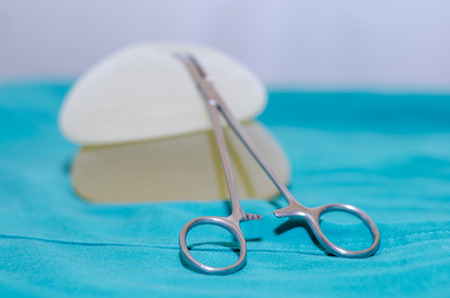Breast Implant Side Effects

Breast implant side effects may include a rare cancer called anaplastic large cell lymphoma (ALCL), as well as various debilitating symptoms known collectively as “breast implant illness.”
Are You Suffering from Breast Implant Side Effects? Contact an Attorney Today.
The attorneys at Bernstein Liebhard LLP are now evaluating potential lawsuits on behalf of women who developed debilitating symptoms or serious health conditions associated with silicone or textured breast implants, including:
- Hives, itching and skin rashes
- Severe fatigue
- Pain in breasts, chest, lymph nodes and/or ribs
- Swollen lymph nodes
- Weakness
- Nausea
- Excessive amounts of heavy metal in the bloodstream
- Silicone toxicity
- Shortness of breath
- Poor wound healing
- Autoimmune problems
- Digestive issues
- Gastrointestinal problems
- ALCL or “breast implant cancer”
To learn if you could be entitled to compensation for breast implant side effects, please contact our office today by calling (888) 994-5118.
Breast Implant Illness
In 1992, the U.S. Food & Drug Administration (FDA) all but banned the use of silicone breast implants due to concerns over their potential side effects. By the time the agency acted, thousands of women had already filed suit for autoimmune and connective tissue disorders allegedly associated with the devices. The FDA rescinded its ban in 2006, despite lingering safety concerns. However, only three companies — Mentor Worldwide, Allergan Plc, and Sientra Inc.– have been authorized by the agency to market silicone implants in the U.S.
Since the FDA allowed sales of silicone breast implants to resume, hundreds of women have reportedly experienced chronic fatigue, muscle pain, cognitive impairment and other debilitating symptoms after receiving the devices. Many now refer to their symptoms as as “breast implant illness.”
In May 2019, the FDA acknowledged that some women experience systemic symptoms, including chronic fatigue, cognitive issues, and joint and muscle pain, following breast implant surgery, which often resolve once silicone breast implants are removed. Although the agency hasn’t established a causal connection between these ailments and silicone breast implants, it is now considering adding a Black Box Warning to device labels and taking other measure to ensure women are informed about the potential for breast implant side effects.
Breast Implant Cancer
In March 2017, the FDA confirmed a small, but significant risk of anaplastic large cell lymphoma (ALCL) among breast implant patients. The agency had been investigating the potential for breast implant cancer since 2011, and had since received more than 350 reports of the rare malignancy in patients with silicon or saline devices. At least 9 women had died as result of the disease.
By July 2019, the number of breast implant-associated ALCL cases had risen to 573, and included 116 cases reported since February 2019. The majority of cases occurred in women who received Allergan’s textured Biocell implants, which had already been recalled in over two dozen countries.
Thirty-three women had died from ALCL. While the FDA was only able to identify the breast implant manufacturer in 13 cases, 12 of the fatalities involved Biocell textured implants.
The FDA concluded that women with Allergan Biocell breast implants were six times more likely to develop breast implant-associated ALCL compared to those who received other types of textured implants.
Following a request from the FDA, Allergan agreed to a worldwide Biocell breast implant recall.
What is Breast Implant Cancer?
ALCL is a slow-growing form of non-Hodgkin’s lymphoma that affects the cells of the immune system. When it occurs in patients with breast implants, it is usually seen in scar tissue around the device. However, breast implant cancer can also occur in the skin or lymph nodes.
ALCL can develop years after breast implant surgery. The FDA recommends patients monitor their breast implants and contact their doctors promptly if they notice pain, swelling or any changes in or around the device. There is no need to have textured breast implants removed if symptoms of ALCL are not present.
Fortunately, the disease is very treatable when detected early. Treatment usually includes removal of the breast implant, as well as the surrounding scar capsule.
Legal Help for Victims of Breast Implant Side Effects
Bernstein Liebhard LLP is offering free legal reviews to women who may be suffering from breast implant side effects. If or a loved one developed ALCL or an unexplained chronic illness after breast implant surgery, please call (888) 994-5118 to learn more about the legal options available to you.
- The New York Times (1998) “Settlement on Breast Implant Claims” http://www.nytimes.com/1998/11/10/business/settlement-on-breast-implant-claims.html
- FDA (2017) “Silicone Gel-Filled Breast Implants” http://www.fda.gov/MedicalDevices/ProductsandMedicalProcedures/ImplantsandProsthetics/BreastImplants/ucm063871.htm
- FDA (May 2019) “Statement from FDA Principal Deputy Commissioner Amy Abernethy, M.D., Ph.D., and Jeff Shuren, M.D., J.D., director of the FDA’s Center for Devices and Radiological Health on FDA’s new efforts to protect women’s health and help to ensure the safety of breast implants” https://www.fda.gov/news-events/press-announcements/statement-fda-principal-deputy-commissioner-amy-abernethy-md-phd-and-jeff-shuren-md-jd-director-fdas
- FDA (March 2017) “Breast Implant-Associated Anaplastic Large Cell Lymphoma (BIA-ALCL)” https://www.fda.gov/MedicalDevices/ProductsandMedicalProcedures/ImplantsandProsthetics/BreastImplants/ucm239995.htm
- FDA (July 2019) “FDA Safety Communication” https://www.fda.gov/medical-devices/safety-communications/fda-takes-action-protect-patients-risk-certain-textured-breast-implants-requests-allergan
- Allergan (July 2019) “Allergan Voluntarily Recalls BIOCELL Textured Breast Implants and Tissue Expanders” https://www.allergan.com/news/news/thomson-reuters/allergan-voluntarily-recalls-biocell-textured-brea
Get the latest news and litigation updates about this case by following us on Facebook. Click the "Like" button below.
Follow Us


